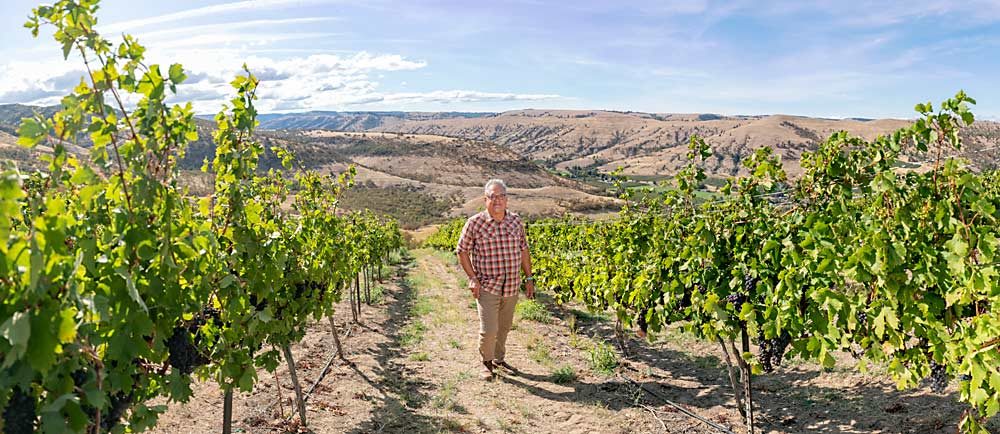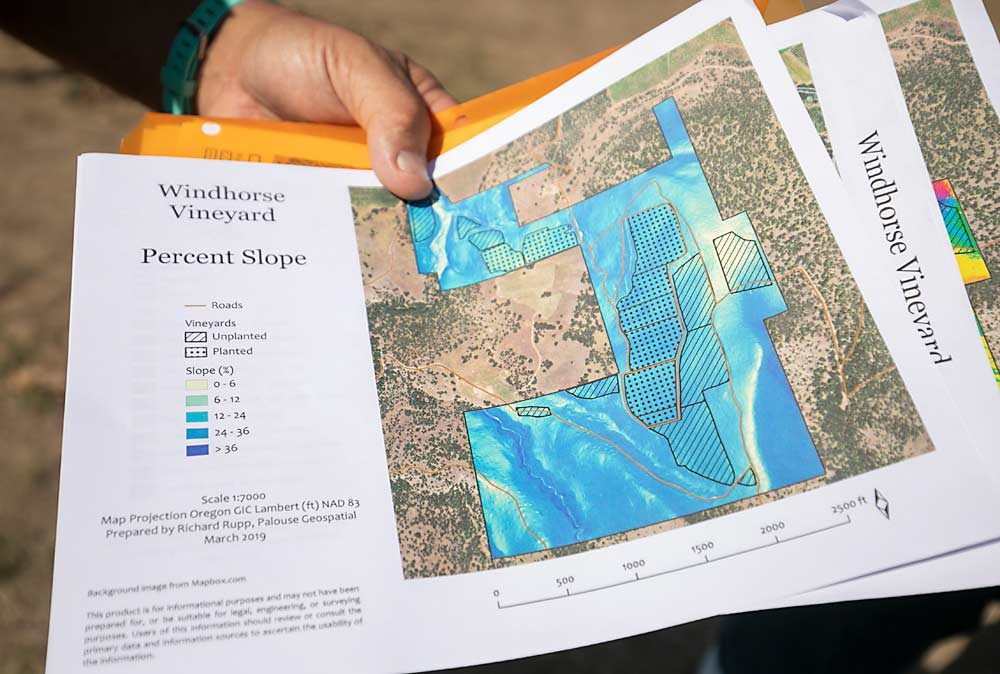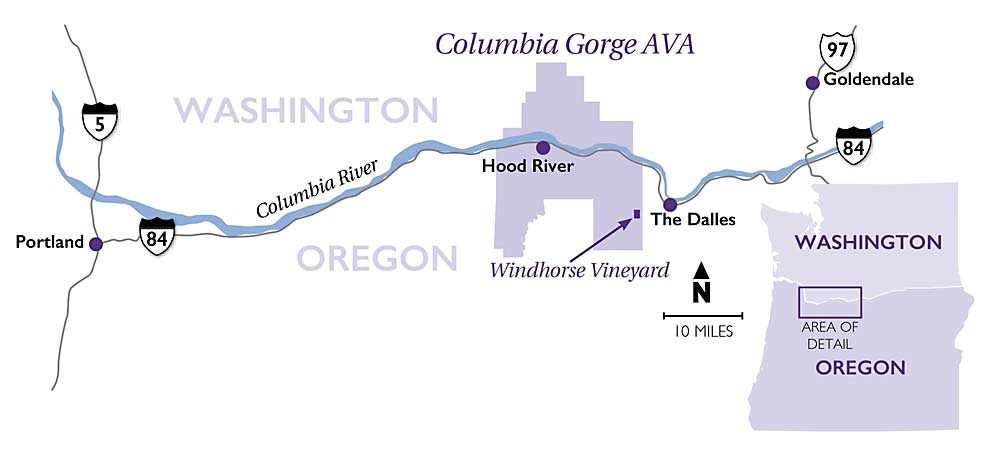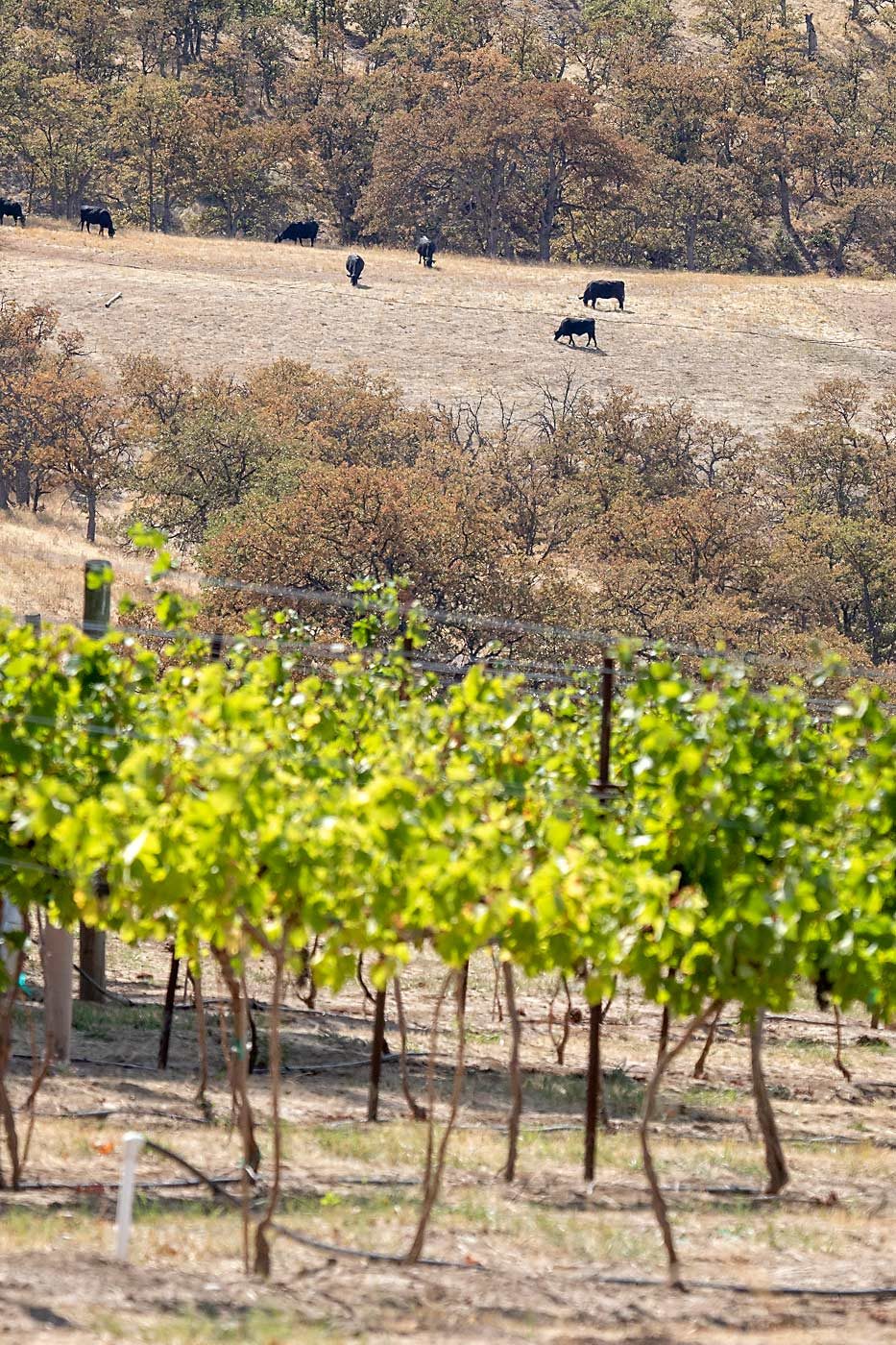
While so many Northwest wine grape growers are cutting back, a Columbia Gorge viticulturist is expanding.
Alan Busacca has plans to nearly double the acreage of his Windhorse Vineyard perched high on the hills southwest of The Dalles, Oregon.
“We have a different set of circumstances here, I’m convinced, that will allow us to ride out this time of oversupply,” he said.
Those circumstances involve a local niche market with the wineries in the Columbia Gorge American Viticultural Area, a relatively small wine region established in 2004 along the Columbia River straddling the Oregon-Washington border. Those wineries want more local wine grapes.
He may be onto something.
Small, boutique wineries with higher price points are faring relatively well in this period of oversupply. For that matter, Oregon wineries in general are doing better than Washington or California, said Chris Bitter, a wine market analyst and consultant with Vintage Economics, based in Seattle, Washington.
Nielsen statistics based on retail stores show Oregon wine sales by volume rose nearly 13 percent between July 2018 and June 2019, Bitter said. Washington grew only 0.7 percent and California fell by 1.7 percent.

Busacca, a former Washington State University soil scientist and geologist involved with the creation of many of the Northwest’s AVAs, founded the business in 2008 with partner Lonnie Wright. The partners named the vineyard Volcano Ridge, a nod to its unique steep slopes and soils from ancient volcanic mudflows, and produced Merlot, Chardonnay, Pinot Noir and Zinfandel.
The vineyard received a shot in the arm this year when Steve Bruere, a Midwest agribusiness and land investment expert, led a group to purchase Wright’s ownership share and partner with Busacca. They renamed the vineyard and plan to double its size — right now at 25 acres — over the next three years.
Eventually, they plan to grow Syrah, Grenache, Malbec, Cabernet Franc, Primitivo and even a small block of Nero d’Avola, a rare red grape variety that hails from the island of Sicily, home of Busacca’s grandfather.
Wright’s Columbia Country Vineyards will continue to act as the management company for the vineyard.
Windhorse sells grapes to about 15 wineries, about half of them in the Willamette Valley and half in the Columbia Gorge. Those local wineries have been seeking more grapes from their backyard.
“They want to build their story around locally grown grapes,” Busacca said.

Indeed, said Jill House, owner of Stave & Stone Wine Estates in Hood River, Oregon. The Columbia Gorge wine region is growing, and it offers a wide range of varieties, from Riesling to big reds, she said.
The fourth-generation farmer wants to showcase grapes from her area.
“It’s who we are,” she said. “It’s who I am.”
Stave & Stone crushes almost solely Columbia Gorge grapes; her one exception is a Cabernet from near Hermiston to the east.
Busacca has a total of 160 acres straddling a ridge well above freezing danger. To irrigate, he and his partner had to pump from a well at 450 feet above sea level up to vineyards at 1,200 feet and will go to 1,300 feet next year.
Only about 50 of his acres are plantable. The rest is covered with Oregon white oak, pine and grass — a terrain sometimes called “oak savannah.” Most of the property overlooks Mill Creek Valley, just outside the Columbia River Gorge National Scenic Area, with views of the river, Mount Adams and Mount Hood from various spots.

He and his partner do not plan their own winery, but they hope to bring people to the property.
They aim to improve roads to the top of the ridge and construct a wind-protected picnic shelter where visitors might experience the sense of locale that caught their eye in the first place. He even arranges tours with a hotel in nearby Dufur, Oregon.
“I see that we can deepen our brand and bring joy to people and happiness to people by having some groups come out,” he said. •
—by Ross Courtney






Alan is one of the most amazing people I have ever known. I’m excited to see his progress and success.